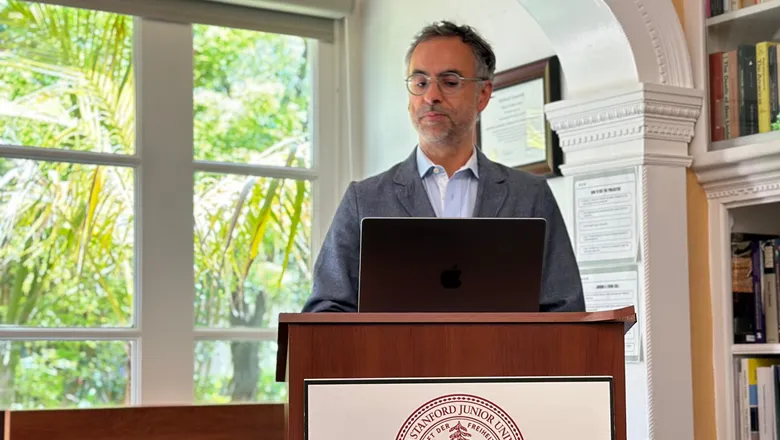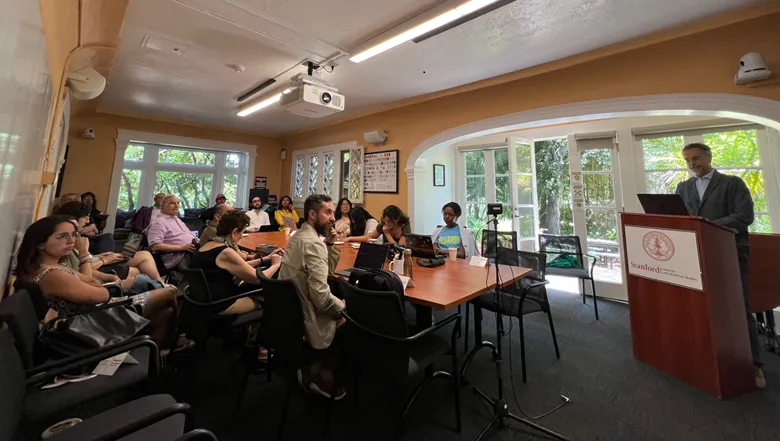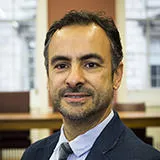10 June 2024
Can Science and Law Save the Amazon and its Peoples?
After giving a lecture at Stanford University on the struggle to overcome political and economic resistance by those who profit from the destruction of the Amazon forest, Professor Octavio Ferraz took part in a screening of the documentary film Orphaned Mothers on police violence in Rio de Janeiro

Professor Octavio Ferraz, Co-Director of the Transnational Law Institute, gave last week (Friday) a lecture at Stanford University in California, USA, and talked about the struggle to overcome political and economic resistance by those who profit from the destruction of the Amazon forest.
The Brazilian Amazon (nearly 60% of the whole forest) and its traditional peoples (indigenous groups, riverine communities and communities of former enslaved peoples) are under unprecedented pressure. Cattle farming, soy, logging and mining have already destroyed about one fifth of the forest in the past few decades and affected the lives and livelihoods of thousands of humans who have traditionally lived in harmony with the forest. If destruction continues, many scientists believe the biome may reach a tipping point, with large swathes of former tropical forest turning into a savannah.
That would be catastrophic not only for the traditional peoples, to Brazil and the region, given the forest’s important role in regulating rainfall and the local climate, but also for the world as a whole, in particular due to the loss of one of the most important hotspots of biodiversity in the planet. We have sufficient scientific knowledge about what needs to be done to save the Amazon and also a robust legal framework to implement the solutions.

On Tuesday, Professor Ferraz took a part in a panel on the challenges and progress in Brazil, moderated by professor Leif Wenar and supported by the McCoy Family Centre for Ethics in Society, Centre for Human Rights and International Justice, Centre for Latin American Studies and the Stanford Woods Institute for the Environment
After the discussion on human rights, environmental justice, and social inequities, the participants watched the film Orphaned Mothers (A Troco de Nada), co-produced by the Transnational law institute and screened also here at King’s College London. The film tells the story of the struggle of mothers and activists against police brutality in Rio de Janeiro.

